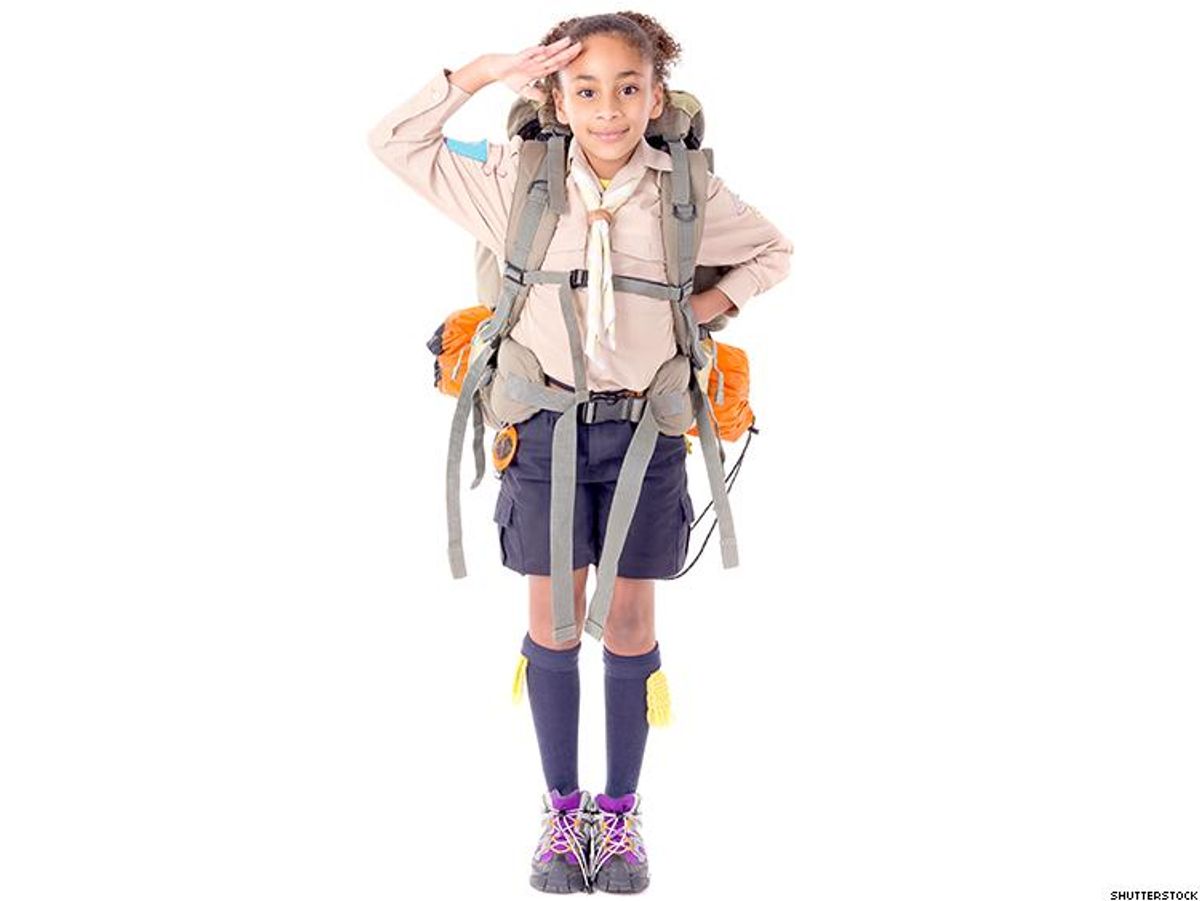Every Wednesday night, my mother would yell at me to make sure I found my Boy Scout uniform. After I spent 15 minutes trying to find where I left it and hurriedly threw it on, my mom would drive me the 10 minutes to my troop's meeting. As I spent my two hours learning knots or earning my next merit badge, my mother would wait in another room for me to finish so she could finally head home after her long day.
My mother and many other women were always a part of my Boy Scout experience. My mother would always take me to and from meetings. She and many of my fellow scouts' mothers helped facilitate events, cooked food for trips, and were even scoutmasters and leaders for my troop.
Later, when I was a counselor at my Boy Scout camp, several of our staff members were women. They were among the hardest-working members of the team, exemplars of all the tenets of the Scout Oath and Law.
Adult women were constant facilitators, leaders, and enablers of the scouting program. Without them, I and many other scouts could never have been able to take part in the life-shaping program that was the Boy Scouts of America.
Despite women's numerous contributions to scouting, young women wishing to actually participate in the actual program were always relegated to the sidelines. Some girls could participate in the program as a venturing scout, a group of scouts focusing on physical activities and high adventure rather than the skill and character building of regular troops. Until Wednesday's announcement, girls could not earn merit badges and could not ever earn that coveted rank of Eagle Scout. Or at least ... so they thought.
After interviewing my mother and father, my scoutmaster, and myself all separately, my board of review, made up of several Boy Scout leaders, pronounced me an Eagle Scout. The day I earned my Eagle Scout rank was one of the proudest of my life. I had worked so hard, earned numerous merit badges, led a community service project, and helped lead and guide many of the younger scouts in my troop. Earning that Eagle Scout rank was one the toughest yet most rewarding challenges in my life.
I remember my scoutmaster telling me that once you became an Eagle Scout, you were an Eagle Scout the rest of your life. It was an achievement that became a part of your identity and showed others your strength of character and leadership ability.
So when I came out several years later as a trans woman, I was terrified that my Eagle Scout rank would be taken away from me. There certainly have been cases of Boy Scout leadership removing an Eagle Scout rank from LGBT scouts because of their identity.
Would I lose my crowning childhood achievement, something that still gives me pride to this day, because of my gender identity? Should I hide my Eagle Scout rank in order to not lose it? But if I couldn't talk about it, what was the point of keeping it anyway?
The doubt went even further as I continued to question myself. As the Boy Scouts of America actively rejected my womanhood from being a part of its program, I worried that what I had learned and how I had grown in the Boy Scouts was antithetical to my gender identity. Had I somehow invalidated my gender by being an Eagle Scout? Had I betrayed my sense of morality and citizenship that I had learned in the Boy Scouts by being transgender? The womanhood and my Boy Scout identity were at constant odds because the binary nature of the scouting program excluded my very identity from participating.
I decided to still wear my Eagle Scout identity proudly alongside my newly revealed trans woman identity. These seemingly conflicting identities were both a large part of who I was and how I wanted to present myself to the world. No matter what happened, I could never lose what I had gained in my heart. Yet I always worried that one day I would be told that I wasn't worthy of being an Eagle Scout simply because of how I identified.
So when the BSA revealed it would let girls participate in scouting, I was overjoyed. Two of my identities that seemed at constant odds can now coexist in peace. Best of all, I get to see and encourage a new generation of girls to experience the joy and growth that comes from the excellent program that scouting offers.
It's sad that we still see so many different programs in terms of gender binary. Boy Scouts. Girl Scouts. Setting up those oppositions reinforces that there are certain character traits and elements of morality only accessible to one gender or another. Yet we in the trans community know that this is certainly not the case.
I look back to all the women who helped give me my scouting experience and know that it was ridiculous to ever think that a girl could never live by the Scout Oath and Law. Femininity and womanhood have always been a part of the Boy Scouts of America. I'm just glad the BSA is finally getting around to acknowledging it.
JESSIE EARL is a video producer for The Advocate.













































































